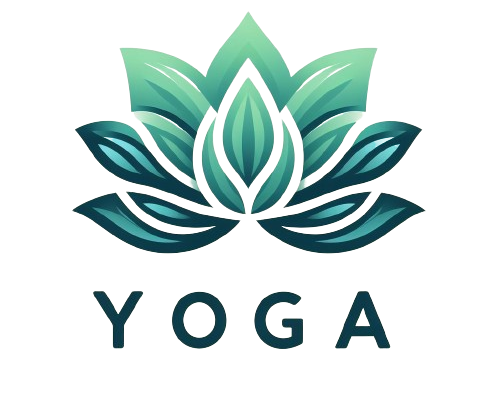If you’re strolling through the maze of addiction recovery, or maybe just curious about amplifying your mental strength, buckle in. We’re diving deep into an unexpected ally on this journey – meditation. No, I’m not talking about hovering monks or whispered secrets. This is about real, tangible shifts that can happen when you give meditation a shot.
What’s Meditation Got to Do with It?

The concept of meditation, particularly in the context of overcoming addictions and managing cravings, is often misunderstood. It goes far beyond the simplistic view of sitting in silence, closing your eyes, and somehow hoping for a miraculous change. The real beauty of meditation lies in its ability to cultivate a profound level of mindfulness, which acts as a gateway to a new dimension of dealing with your thoughts and emotions. When you meditate, you’re not just passively sitting; you’re engaging in a deep, introspective journey. This journey allows you to recognize your thoughts and feelings, acknowledge their presence without immediate reaction, and understand them more clearly.
Think about the superpower metaphor again. It’s like having an inner observer who watches over your cravings, recognizing them as they arise, but keeping a safe emotional distance. This observer has the patience and wisdom not to engage or wrestle with these cravings but to note their presence and let them pass, like clouds drifting across the sky. This process is important in addiction recovery. By practicing mindfulness through meditation, you develop a stronger sense of self-awareness, learning to live in the moment, and appreciating life as it is, without the constant need to seek out substances to numb or enhance your reality. Over time, this can lead to a significant shift in how you relate to your cravings and destructive habits, transforming your approach to recovery and leading to a more balanced, controlled, and fulfilling life.
Meditation’s Impact by the Numbers
The impact of meditation on the journey of addiction recovery can indeed feel like uncovering a hidden cheat code, one that equips individuals with a diverse set of tools to manage and overcome various challenges. The benefits, ranging from stress reduction and emotional regulation to enhanced self-awareness, craving management, and improved cognitive functions, are not just anecdotal but are increasingly supported by scientific research. For instance, stress, a notorious catalyst for relapse, can significantly diminish when meditation practices are regularly employed, thanks to its ability to invoke the body’s relaxation response. This biological shift reduces stress and lowers the heart rate, decreases blood pressure, and eases anxiety, creating a more conducive environment for recovery and making it easier to resist the lure of relapse triggers.
The emotional armor that meditation provides through improved emotional regulation is like developing an internal coping mechanism. It trains individuals to approach their feelings with a sense of curiosity and compassion, rather than fear and avoidance. This heightened ability to deal with emotions constructively can prevent the emotional spirals that often precede substance use, offering a stabilizing effect during turbulent times.
As for increased self-awareness, meditation acts as a mirror, reflecting the underlying motives and triggers behind substance use. This introspection can reveal the root causes of addiction, allowing for a deeper understanding and the development of healthier coping strategies. It’s like assembling a personalized toolkit for emotional resilience and mental well-being.
When it comes to craving management, meditation provides a unique form of strength. It teaches the art of observing cravings without succumbing to them, embodying a sense of inner calm and collectedness even in the face of temptation. This ability to acknowledge cravings without acting on them is crucial in the ongoing battle against addiction.
The cognitive improvements attributed to regular meditation practice, such as sharper focus and better memory, empower individuals in recovery to stay engaged in their treatment processes, learn new skills, and remember the motivations driving their journey to sobriety.
Each of these benefits, scientifically validated and echoed by personal testimonies, underscores the transformative power of meditation in the realm of addiction recovery. It provides a holistic approach that addresses the symptoms of substance abuse and nurtures the mind, body, and soul, laying a solid foundation for a healthier, more resilient life post-addiction.
How to Start Meditating Today
Convinced yet? Ready to give it a go? Here’s how to kickstart your meditation journey:
Find Your Spot: look for a quiet, comfortable place where you won’t be disturbed. This becomes your sanctuary.
Set a Timer: start with small goals. Five minutes a day is a great beginning. You can always increase this as you become more comfortable.
Get in Position: sit in a comfortable posture. Keep your back straight, hands on your knees or in your lap, and relax your shoulders.
Breathe: focus on your breath. Observe its natural rhythm without trying to control it. This focus anchors you in the moment.
Welcome Thoughts: your mind will wander, and that’s okay. Recognize each thought as it comes, then gently guide your attention back to your breath.
Consistency is key. It’s like working out; you don’t see results after just one session. The transformation is gradual but profoundly impactful.
Personal Insights
Diving into meditation as part of addiction recovery is embarking on an adventure of self-discovery and empowerment. It’s not a silver bullet, but it’s a powerful tool in your arsenal to maintain sobriety and foster a healthier mind and body.
Remember, recovery is as much about rebuilding relationships, including the one with yourself, as it is about abstaining from substances. Meditation strengthens this internal bond, helping you tune into your needs and feelings with compassion and without judgment.
So, why not give it a try? The only thing you stand to lose is a bit of time. But what you gain could be the very edge you need in forging a new, resilient, and mindful path in life.
To those embarking on this meditative journey, know that every moment of mindfulness is a step toward a stronger, more present you. Keep pushing forward, breath by breath. The peace and clarity at the end of this path are well worth the journey.
